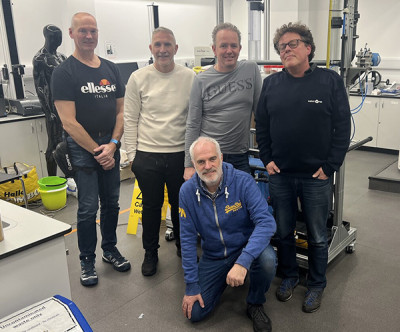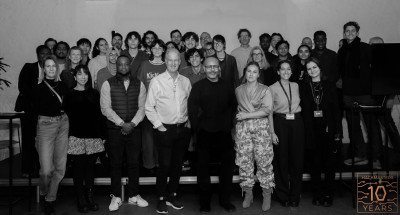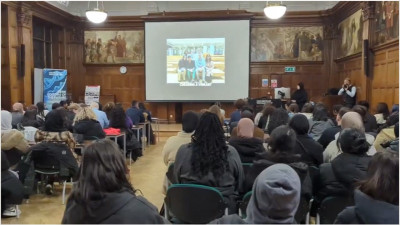Welcome to the School of Engineering and Materials Science
The School of Engineering and Materials Science was formed from Queen Mary's Department of Engineering and Department of Materials and provides outstanding degree programmes coupled with internationally leading research which is reflected in all our undergraduate programmes. Our taught postgraduate programmes are similarly first class and provide students with a fantastic opportunity to engage with cutting-edge research in: Bioengineering, Intelligent Transport, Sustainable Engineering and Engineering and Materials Education. The skills developed by our students and our extensive industrial connections provide graduates with excellent employability in stimulating and well-paid careers.
Events and Seminars
 Thu 30 Jan 2025 Thu 30 Jan 202512:00 - 13:30 | Associate Students SEB |
 Wed 19 Feb 2025 Wed 19 Feb 202515:00 - 16:00 | SEMS seminars: Prof Guillaume Charras, UCL |
 Wed 5 Mar 2025 Wed 5 Mar 202514:00 - 15:00 | SEMS Seminar Series: Prof Weisi Guo, Cranfield University |
 Wed 2 Apr 2025 Wed 2 Apr 202515:00 - 16:00 | Queen Mary Bioengineering Seminar Series - Dr. Alberto Elosegui-Artola, The Francis Crick Institute |
 Wed 16 Apr 2025 Wed 16 Apr 202515:00 - 16:00 | SEMS seminars: Google DeepMind Chair of Machine Learning and AI, Professor Marc Deisenroth, UCL |
Recent publications
- TANG W, Zhang S, Liu T, Jung C, Kim S-H, Scheu C, Yue S and Fenwick O (2025). Reduced Thermal Conductivity and Improved Stability by B-Site Doping in Tin Halide Perovskites. The Journal of Physical Chemistry Letters
06-01-2025 - Humphry-Baker SA, Mellan TA, Finnis M, Polcik P, Lee WE, Reece M and Grasso S (2025). Thermal conductivity of WC: Microstructural design driven by first-principles simulations. Elsevier Acta Materialia vol. 283
01-01-2025 - Cook M, Peeva LG and Livingston AG (2025). Separation of an azeotropic mixture through the use of organic solvent nanofiltration. Elsevier Separation and Purification Technology vol. 353
01-01-2025













